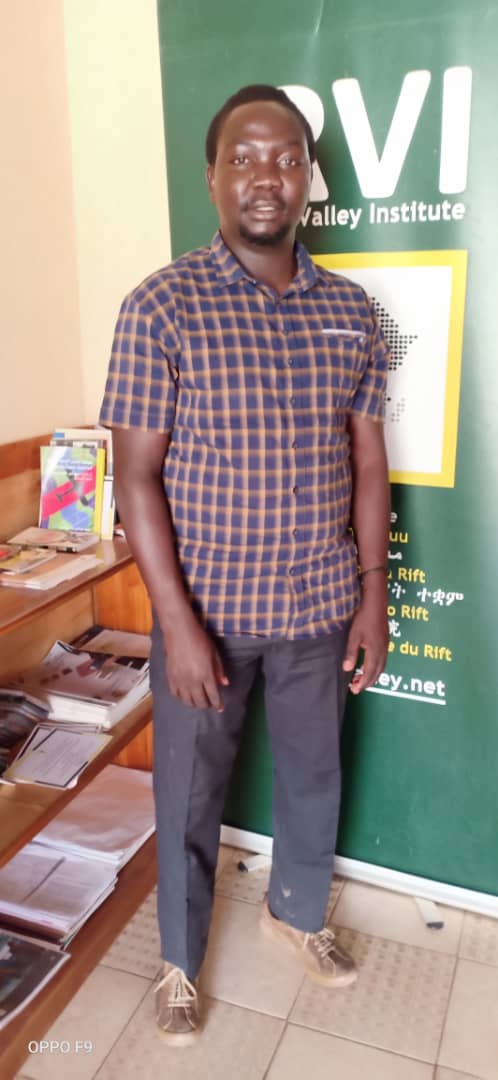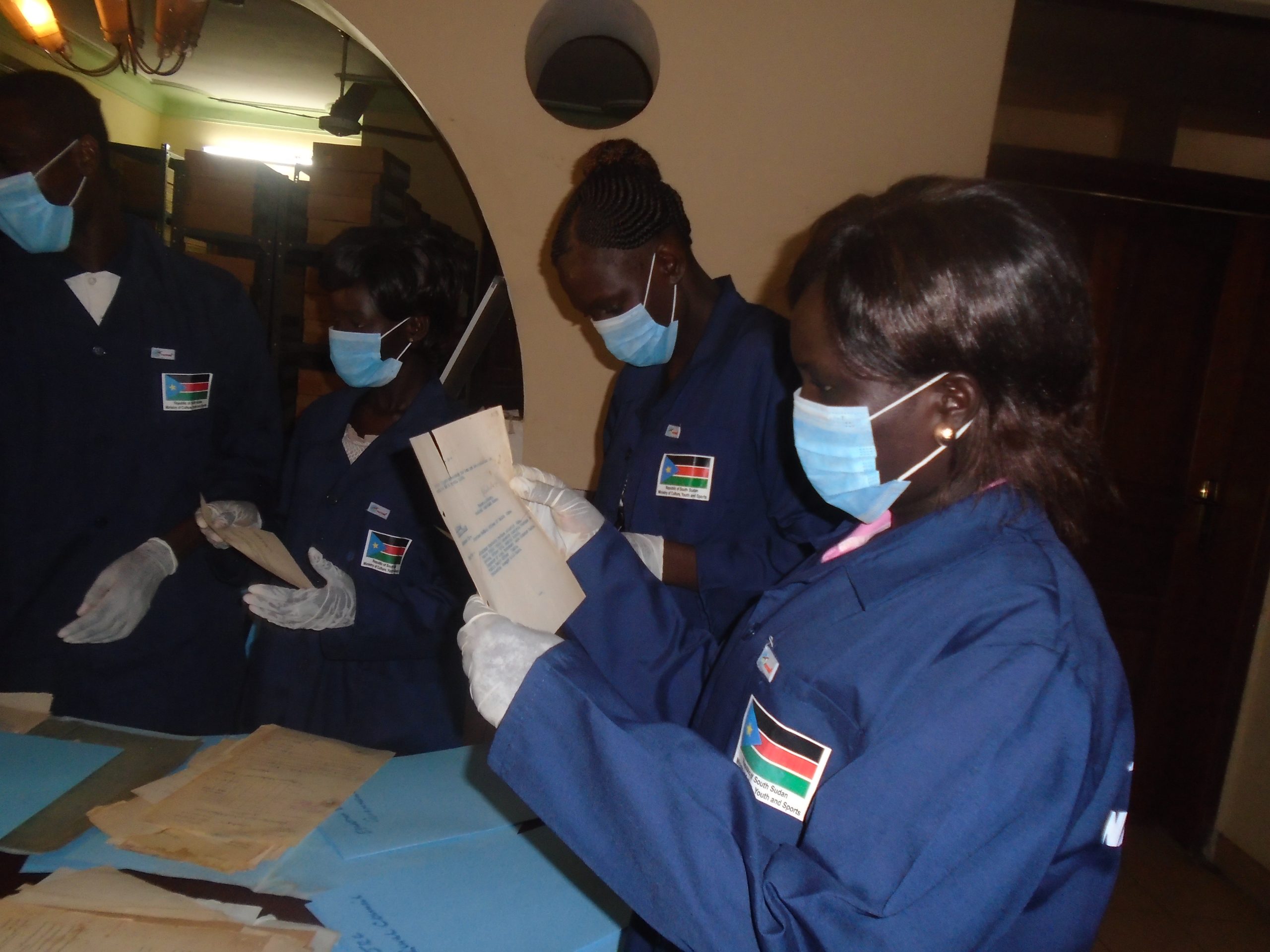This blog was written by Alex Miskin

Since the start of the COVID-19 pandemic earlier this year, countries affected by the virus have implemented a range of policies intended to limit its spread and protect their populations. In South Sudan, a coronavirus taskforce, initially led by First Vice President Riek Machar (subsequently replaced by VP Hussein Abdel Bagi), was set up on 20 March with the objective of coordinating the response. Following this, a range of measures were announced, including the closure of schools, universities and all shops selling non-food or other non-essential commodities. All weddings, funerals and political events were also cancelled. International borders were closed and travel within South Sudan restricted.
These policies have had a serious impact on the economy, leaving many people struggling to survive. For many, the economic consequences have become more significant than the threat of catching the virus itself. The effects of these policies have already been explored in previous RVI publications on South Sudan’s food imports, and also cross-border labour migration in Northern Bahr el-Ghazal. This piece will look at how a group of young people are faring, all of whom are Catholic University of South Sudan graduates and are currently working on internships with RVI in partnership with the Ministry of Culture, Museums and National Heritage on the digitization of the South Sudan National Archives, supported by the Norwegian Government through UNESCO. We asked them the question: ‘What are the consequences of the COVID-19 measures put in place on your individual wellbeing?’ The answers reveal much about the situation in Juba related to COVID-19. Many thanks to Julia Luka Joseph, Sadic Morris, Guo Annet Alfred, Viola Peter Simplisio, Emmanuela Evan Fabio and Oyani Justine Paride for participating.
Trauma and stress
Many of our respondents said that they have found the last few months to be a traumatic or stressful time for them. Viola Peter explained that:
Staying at home is stressful in itself: due to the corona virus pandemic, the president of the republic of South Sudan has issued a decree to stay home, this results to a situation of forcing people indoors, it could be a very visible symbol of just how out of control the situation has become.
Sadic said that the pandemic is stressful ‘because there is no work, [the] disease has no cure and [there is] boredom from staying at home.’ Julia noted that the pandemic:
has cause[d] psychological and mental instability in me. The news regarding it is very fast, contagious in nature and has become the point of concern. Especially when I saw on TV how so many people have died and continue to get affected by COVID-19 worldwide. This has become the most dramatizing moment in my life.
Public communications about coronavirus tend to cause anxiety as authorities are more focused on announcing bad news about deaths and infections, rather than positive news about recoveries.
Strains on livelihoods
The response to the pandemic is straining people’s livelihoods. Juba’s food markets have gone into a state of panic, which has jeopardized food security. With daily price rises, and the majority of households relying on wage labour to buy food, people will either starve or opt to ignore or downplay the dangers of the virus.
Viola told us that there is a ‘difficulty to meet needs of food commodities as prices are shooting up every day, so in this circumstance I personally cannot afford to buy anything because I am jobless.’
Sadic said that ‘the price of the commodity—both food and non–food—is increasing in the market and it became difficult to get food if you are not working or don’t have money’.
For Oyani:
I particularly lack access to adequate food because of limited resources or money caused by COVID-19 that contributed to poor health condition happening in my current lifetime. For instance, fifty [kg] of maize flour price is equivalent to 12,000 SSP likewise to other perishable goods that I myself cannot afford to buy because they are expensive.
Stating how often he provides for himself, he noted that:
I used to [sustain] my life doing casual work before the outbreak of COVID-19 occurred in our country, but now with the existence of it, it has contributed to the stoppage of my daily work that I used to support myself with and since then life has become a burden without having to work.
Connected to the difficulty of finding work is the lack of public transport, which was ordered to operate at half capacity to enable social distancing on board. This has meant that transport operators have had to put their prices up to cover their lost earnings. For example, the bus from Juba to Gudele used to cost 100 South Sudanese Pounds (SSP), but during the lockdown has increased to 200 SSP. On this issue, Emmanuela explained that: ‘The price of transport also become a challenge to me because transport is now two way in one and now work has stopped for the moment’.
Effects of social distancing

While social distancing is a central part of the government’s response to the pandemic, it is difficult—both practically and socially—for many people living in Juba. Also, those trying to enforce these measures are often viewed with suspicion as advocates of the unpopular High-Level Taskforce or are thought to have coronavirus themselves. Often they hardly maintain the measures they are asked to enforce.
All interviewees agreed that while social distancing, and other measures, had been put in place for their own good, it has contributed to many ills in their lives. As Oyani said:
Social Distancing is one of the measures found in place to stop or weaken the spread of COVID-19 that has become my side effect. According to my cultural beliefs, we [sustain] ourselves by eating in a group. But now, this issue of social distancing has affected my life in the way that I am forced by hunger to fill my stomach together with a group. [This] means I am at risk of getting infected with coronavirus since it is the only little food that cannot be divided to each person so, how can it be solved in my current life situation?
Guo added: ‘Corona-virus effects social interaction and limits the movement of people, people like me have group association which is now affected by the rule and also social distance’.
While Julia explained that ‘Another challenge is about greeting, shaking hands or hugging someone, and you know I am used to greeting by shaking hands. So, I don’t have to do that even if it’s a loved one or a family member’.
Emmanuela said:
[The] coronavirus pandemic has robbed me of my social needs upon the decree issued by the president of the republic of South Sudan banning social gathering. I never had the opportunity to be in social grouping such as Rabita [a community self-help group] with my friends. On top of that I have also lost frequent visits to some of my relatives as I spend most of my time indoors.
Similarly, Emmanuela regrets that the pandemic has resulted in the banning of social gatherings. She told us that she has to ‘forget some of the small activities that used to bring me some income like small business group contributions. This has limited my ability in getting some money for my livelihood sustainability.’
Sadic, who was locked down in Mundri with his family, said that he hasn’t been able to go to church since April when the High-Level Taskforce banned church services and also stopped all travel from outside the state.
Emmanuela noted that ‘coronavirus has led to the banning of social gathering including worship centres. This has altered my daily routine of going to church every Sunday’.
Julia added that:
Since the government said all shops and some work have to close, I am really bankrupt because I am not earning like I used to at the moment. Missing friends and loved ones because of the partial lockdown… Churches have been closed and I don’t go to church anymore and that is the place where someone gets to pray and give thanks to God. Markets are closed due to the virus. Many people who work in the market find it very hard to feed their families in such a hard time. This is especially for those selling clothes, non-food items etc. And kids are staying at home because schools have been closed.
Conclusion
As is shown by the words of our interns, COVID-19 is changing life for many people in South Sudan. While South Sudanese have many dark memories of the war years, the challenge of the virus is something different: in war battles take place in specific locations; people die but still others find ways to get to safety. But, for COVID-19, there is nowhere that is safe. Life has changed, and will continue to do so, in unpredictable ways. Nonetheless, it is important to be proactive by continuing to follow guidelines from WHO and Health Authorities in the country in order to be safe



